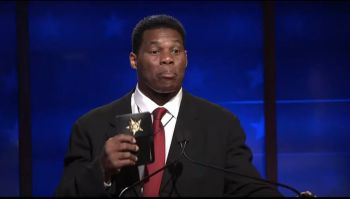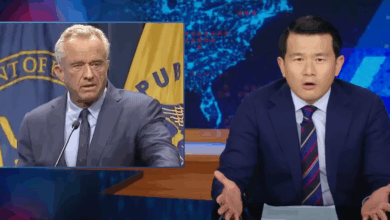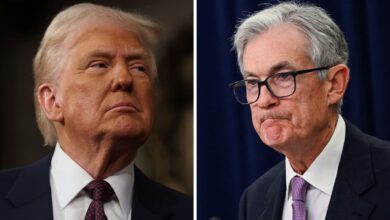Black Male Voter Problem? Truth vs Lies


Source: RichLegg / Getty
Republicans have spewed the controversial “Black male voter problem” against the Democrats for years, but as the midterm elections rapidly approach, is there any truth behind the claim?
This week, one user on Twitter was quick to debunk the divisive idea by posting data from a Pew Research Center report published last year and showing evidence that disproved the myth. While reports claimed 19% of Black men voted for Donald Trump in 2020, the validated data showed that support for the former president fell in 2020 compared to 2016 during his first campaign run. To be sure, Trump’s support among Black male voters fell from 14% in 2016 to 12% in 2020.
In fact, it was the Democrats who won over the coveted voting demographic. Now-President Joe Biden was able to raise support for Democrats among Black male voters from 81% to 87%, according to the data. In all, Black voters remained overwhelmingly loyal to the Democratic Party, with 92% voting for Biden.
Now, this is not to suggest that Black men haven’t voted Red in the past. According to The Atlantic, Nixon gained 23% of Black male voters during his presidential election in 1972. Some historians speculate that the conservative president’s “Black capitalism” agenda may have helped pull in more of their support.
Black men are ‘not a monolith’
Politically engaged pop culture critic Desus Nice told NewsOne in a recent conversation that all Black male voters can’t be painted with the same brush.
“I mean, we’re not a monolith. So it’s just kind of hard on how to talk to all Black men at the same time. But I think it’s more you have to meet people where they’re at,” he said before adding later: “People aren’t really just gonna listen to someone the yelling at them from like, on top of a mountain.”
He suggested an approach that included community leaders delivering that message so Black men “can make the best opinion when they actually get out there and vote.”

Source: adamkaz / Getty
The issue may be too complex to fully debunk
The real “problem” isn’t a Republican vs. Democrat issue. Maybe the real issue is that Black male voter turnout has decreased significantly over the years. In 2008, 95% of Black male voters cast ballots for Barack Obama, according to the Atlanta Journal-Constitution. But as the years went by, some Black male voters turned conservative and others stopped showing up to the polls altogether.
Mondale Robinson, the creator of the Black Male Voter Project, theorized that the slump could be attributed to the fact that Black men are tired of hearing the same regurgitated “spiel “from politicians, regardless of party.
Black men are facing tough issues with job employment, health and discrimination within the justice system. When politicians can connect the dots in a way that addresses these pertinent issues with action plans that will result in change, Black men will show their voting power and support at the polls, Mondale told the Washington Monthly earlier this month.

Source: Vladimir Vladimirov / Getty
The Democratic political consultant’s organization is devoted to bringing Black men into the electoral process for life, but not through the confines of the traditional voting process. Mondale said he holds discussion groups and panels with Black male non-voters to hear about the issues affecting them and their communities. These conversations are not steeped in voting or the election, but rather serve as think tanks to gather “information about what’s important to Black men to prompt civic engagement and produce supervoters.”
This is a beautiful start, but the issue is very complex and as is suggested in the above tweet, exit polls may not give the most accurate picture of what’s happening at the ballot box. It’s better to look at actual voting data and work with communities to build the desired change.
SEE ALSO:
Black Voters Lead Record Early Turnout In Georgia Despite State’s Restrictive New Voting Law
After 2020, Why Are People Questioning Stacey Abrams’ Ability To Galvanize Black Voters?
Source link







